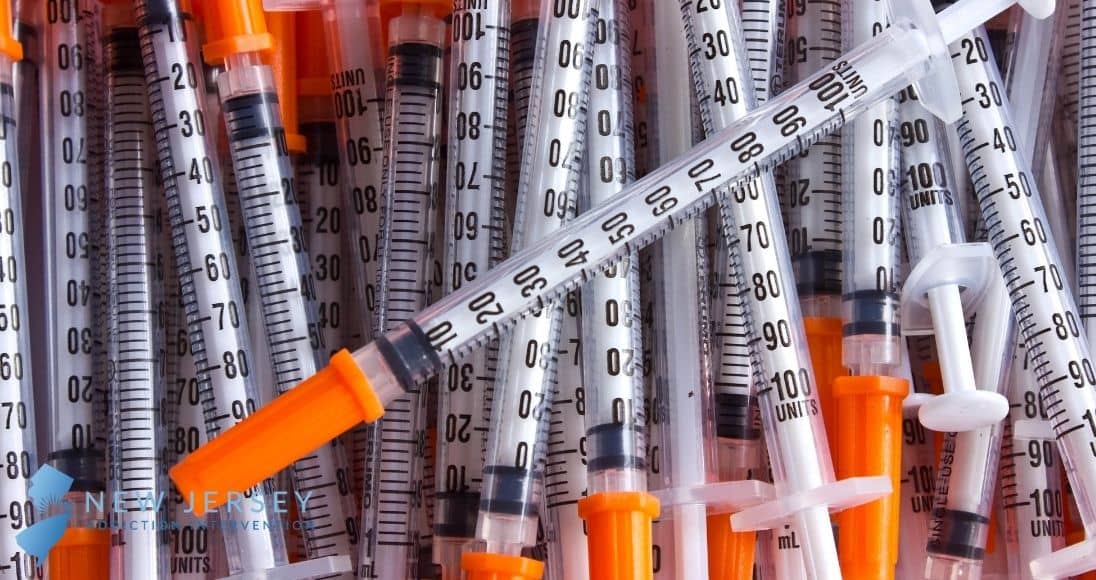Drug addiction is a chronic and progressive disease that is very difficult to overcome, even when a person seeks treatment. However, many people don’t get the help they deserve. The barriers to receiving professional addiction treatment tend to prevent a large portion of individuals from getting treatment.
According to the National Institute on Drug Abuse, out of 23.5 million American adults who needed addiction treatment, only 2.6 million (11.2%) were able to attend.[1]
This highlights the country’s need for accessible treatment.
While not everyone is able to get the help they deserve, harm reduction strategies can help prevent adverse outcomes such as overdose and illness. These strategies can also act as a liaison between people struggling with addiction and low-cost treatment.
In January 2022, New Jersey Governor Phil Murphy expanded harm reduction services in the state–taking a massive step toward equity and healthcare of those affected by addiction.
What is Harm Reduction?
As described by the Substance Abuse and Mental Health Services Administration, harm reduction is “a proactive and evidence-based approach to reduce the negative personal and public health impacts of behavior associated with alcohol and other substance use at both the individual and community levels.”[2]
Harm reduction provides struggling addicts with policies and programs that help keep them safe, healthy, and alive. These strategies aim to combat the overdose epidemic and decrease the spread of blood-borne illnesses from IV drug use.
Examples of harm reduction services include:
- Providing individuals with access to overdose education, counseling, and treatment for infectious diseases or addiction.
- Providing individuals with opioid overdose reversal medications (naloxone)
- Lessen the risk of infectious diseases as well as fungal and bacterial infections by providing people with safe and clean syringes
- Reduce stigma surrounding substance abuse and mental health conditions
- Connecting individuals with recovery programs who have an interest in attending professional treatment
Debunking the Stigma of Harm Reduction
There has been an ongoing debate about the need for harm reduction. While some people view these policies as things that enable addiction, this is far from the truth. To explain, people believe the misconception that providing IV drug users with safe needles will only further their ability to continue using.
This belief has blocked various harm reduction programs’ ability to provide safe needles, overdose reversal medication, and treatment resources to struggling IV drug users. As a result, the rates of overdoses and blood-borne infections continue to rise.
According to the World Health Organization, 1 out of 8 IV drug users live with HIV and 39.4% have viremic HCV infection.[3] Harm reduction services are put in place to protect struggling addicts from contracting these diseases by providing them with safe needles.
Additionally, studies have found harm reduction services to increase a struggling addict’s likelihood to enter professional treatment. According to the Journal of Substance Abuse Treatment, individuals who utilized needle exchange programs reported a 75% reduction in injection as well as a 95% likelihood to stop injecting altogether and remain in professional treatment.[4]
What Does The Syringe Access Bill & Syringes Decriminalization Bill Do?
The governor of New Jersey has recently taken action to provide the state with more access to harm reduction services.
“On January 18, New Jersey Governor Phil Murphy signed harm reduction legislation that will expand syringe service programs (SSP) in the state, establish local drug overdose fatality review teams, decriminalize the possession of syringes and permit certain expungement for the possession and distribution of hypodermic needles.” – The Filter Mag [5]
Governor Murphy had already taken the previous action to end the opioid overdose epidemic in New Jersey. However, he recognized the need to expand his harm reduction legislature to allow more access to safe needle exchange programs and fentanyl testing strips.
Governor Murphy went on to say, “we are acknowledging that this crisis cannot be ended through criminalizing critical harm reduction supplies that prevent fatal overdose and transmission of disease.”[5]
The Syringe Access Bill that Governor Murphy signed into action authorizes more harm reduction sites to offer more access to clean syringes, prevention for HIV and hepatitis, health screenings, and connections to treatment, vaccination, education, and recovery supports.
Benefits of Syringe Access and Decriminalization
Providing struggling IV drug users with safe syringe exchange programs (SEPs) and decriminalizing the allocation of safe needles provide the community with an array of benefits, including:
- Increasing safe disposal of used needles, protecting addicts and the community as a whole from contact with blood-borne diseases.
- Reduced syringe sharing between IV drug users.
- Decreased rates of blood-borne diseases like HIV/AIDS and Hepatitis C.
- Decriminalizing syringes leads to less accidental contact with needles for law enforcement.
- More access to addiction education, professional treatment, mental health resources, vaccination, and health screenings.
Overall, the bills that NJ Governor Murphy enacted take steps to save the lives of addicts, protect the community from high rates of HIV or Hepatitis infections, and promote better access to mental health resources, addiction treatment, and physical health care.
Getting Connected With an Addiction Treatment Program in New Jersey
Finding a reputable addiction treatment program can be difficult, especially if you have never attended treatment before. Thankfully, programs like New Jersey Interventions provide individuals and their family members with the treatment resources they need.
If you or a loved one require an addiction intervention or a professional drug rehab in New Jersey, we are here to help. Contact New Jersey Interventions today to get connected with an addiction treatment program.
References:
- https://nida.nih.gov/sites/default/files/drugfacts_treatmentstats.pdf
- https://www.samhsa.gov/find-help/harm-reduction
- https://www.who.int/teams/global-hiv-hepatitis-and-stis-programmes/populations/people-who-inject-drugs
- https://www.journalofsubstanceabusetreatment.com/article/S0740-5472(00)00104-5/fulltext
- https://filtermag.org/new-jersey-governor-harm-reduction/
Medically Reviewed: March 10, 2022

All of the information on this page has been reviewed and verified by a certified addiction professional.

